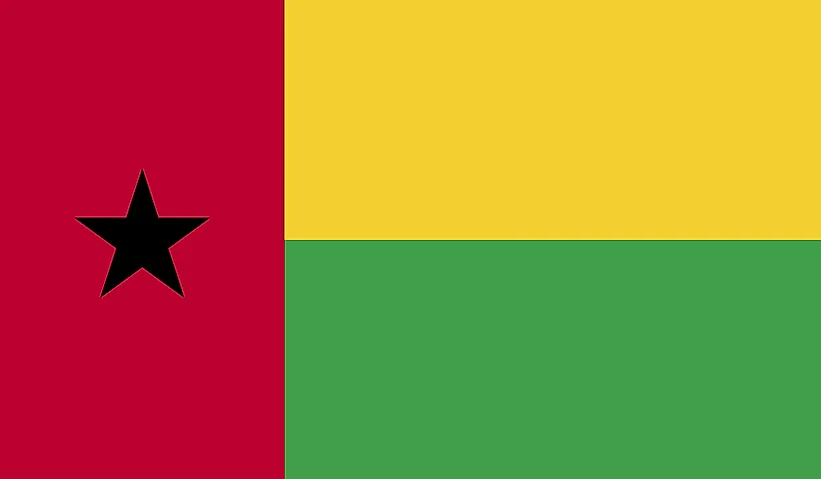
Guinea-Bissau
| Continent | Africa |
| Capital | Bissau |
| Population | 1,759,159 |
| GDP | $2.85 Billion |
| GDP per Capita | $1,600 |
| Dialing Code | +245 |
| ISO Code (2-letter) | GW |
| ISO Code (3-letter) | GNB |
About Guinea-Bissau
Welcome to Guinea-Bissau, a West African nation where cultural diversity meets natural beauty. With approximately 1.9 million people occupying 36,125 square kilometers, Guinea-Bissau combines rich biodiversity with a tapestry of ethnic traditions and a complex historical heritage.
Geographic Features and Natural Beauty
Guinea-Bissau’s geography encompasses a mainland territory and the Bijagos Archipelago, consisting of 88 islands and islets. The landscape features low-lying coastal areas, mangrove swamps, and savanna plains, creating diverse ecosystems that support unique wildlife.
The Bijagos Archipelago, a UNESCO Biosphere Reserve, represents one of West Africa’s most remarkable natural treasures, hosting diverse marine life and rare species including saltwater hippos. The country’s numerous rivers and estuaries create a complex network of waterways supporting both biodiversity and traditional livelihoods.
Protected areas include Orango National Park and João Vieira-Poilão Marine National Park, preserving critical habitats for sea turtles and various marine species. The country’s tropical climate supports diverse flora and fauna, including important mangrove ecosystems.
Cultural Heritage and Traditions
Guinea-Bissauan culture reflects the heritage of multiple ethnic groups, including the Balanta, Fulani, Manjaco, and Papel. Each group maintains distinct traditions, languages, and customs, contributing to the country’s rich cultural mosaic.
Traditional arts include mask carving, particularly among the Bijagó people, and textile weaving. Music and dance play central roles in cultural life, with traditional instruments like the kora and balafon maintaining ancient musical traditions.
Local cuisine features rice as a staple, complemented by fish, cashews, and tropical fruits. Traditional ceremonies and festivals celebrate harvests, initiations, and life cycle events, preserving ancestral practices.
Historical Journey
Guinea-Bissau’s history spans from ancient kingdoms through Portuguese colonization to independence achieved in 1974 after a prolonged liberation struggle led by Amílcar Cabral. The country’s path to independence significantly influenced other African liberation movements.
Post-independence years have seen various political challenges, while recent decades have focused on building democratic institutions and economic development. The country’s historical connection to the ancient Mali Empire continues to influence cultural identity.
Modern Economic Landscape
Today’s economy relies primarily on agriculture, particularly cashew nuts (one of Africa’s largest producers) and fishing. The country’s rich marine resources and agricultural potential present opportunities for sustainable development.
Recent initiatives focus on diversifying the economy, improving infrastructure, and developing tourism, particularly eco-tourism in the Bijagos Archipelago. The cashew industry remains a crucial source of export earnings and rural employment.
International Relations and Global Position
Guinea-Bissau maintains active participation in regional organizations, particularly ECOWAS and the West African Economic and Monetary Union. The country’s strategic location and natural resources contribute to its regional significance.
Did You Know?
• The Bijagos Archipelago is one of Africa’s most well-preserved island ecosystems?
• Guinea-Bissau is one of the world’s largest cashew producers?
• The country is home to rare saltwater hippos in the Bijagos Islands?
• Traditional Bijagó society maintains a matriarchal structure in many aspects?
Conclusion
Guinea-Bissau represents a unique blend of natural wealth and cultural diversity in West Africa. From its pristine archipelago to its vibrant traditions, from its historical legacy to its development aspirations, Guinea-Bissau continues to evolve while preserving its distinctive character. As it addresses challenges including sustainable development and institutional strengthening, the country remains committed to harnessing its potential while protecting its natural and cultural heritage.





